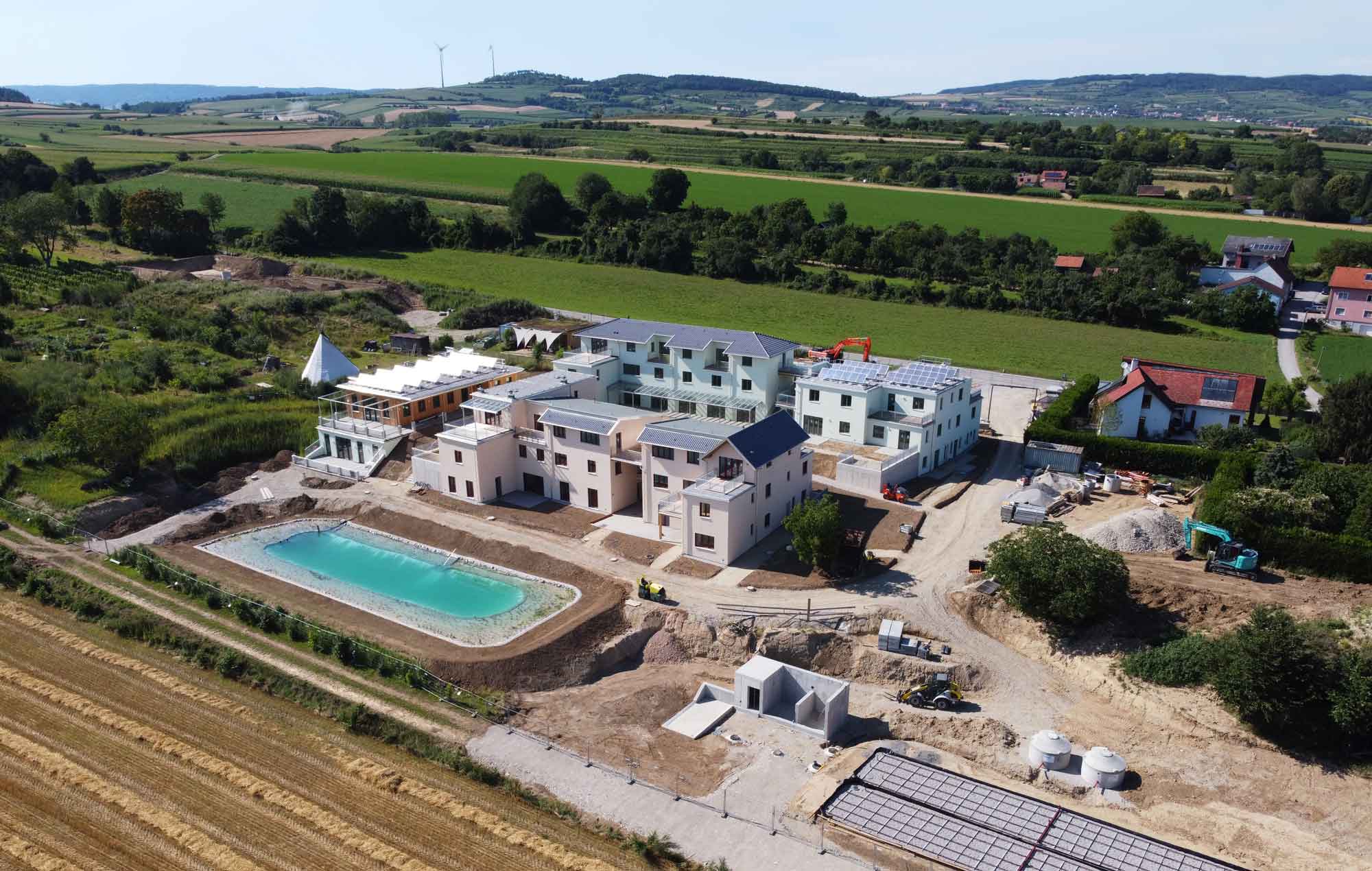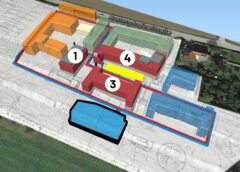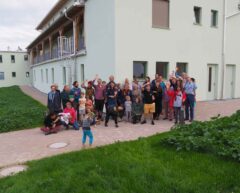In a project initiated by the association “Garten der Generationen” (Garden of Generations), a sustainable residential quarter is being built in Herzogenburg, Lower Austria, over the course of multiple construction phases – all planned according to the sustainable circular economy principles. The concept encompasses cycles of a biological, social, physical and economic nature. An attractive and affordable living space for all generations is being created with a gross floor area of 10,000 m2. The planning for this holistic urban quarter aims to create optimal conditions for a sustainable lifestyle, a sense of community and an environment friendly to both seniors and children. Careful management of locally available resources and a forward-looking energy supply based on renewable energy sources are key pillars of the overall concept. In the first construction phase, which began in winter 2020/2021, two multi-unit residential buildings are being built, complete with workshop, guest apartment and assisted-living facilities as well as a large community building with an event hall.
Anergy network for a sustainable energy supply
An innovative technological concept for the generation, consumption and storage of energy was developed within the research project Anergy2Plus1. The central element of this concept is an anergy network for the supply of heating and cooling that will grow along with the construction phases, gradually integrating more local resources. A low-temperature micro-network connects the buildings with the supply-side long-term storage system, making it possible to exchange heat. Heat pumps distributed throughout the buildings make the heat available to the households. The entire system is largely supplied by solar thermal collectors combined with seasonal long-term storage systems, heat pumps and storage systems inside the buildings. In parallel with the first construction phase, the infrastructure for energy supply via the anergy network was built (including underground storage and foundation storage, heat pumps and solar collectors). Comprehensive monitoring during operation will enable continuous optimisation, and the necessary equipment has already been installed.
Renewable energy sources
Additional local resources will be integrated during the next step. In the future, a compost heater (also commonly known by the German term “biomeiler”) will be used to convert organic waste and green cuttings into usable energy. The heat produced during the aerobic composting process will be captured and used to help cover the heating demand of the building. The nutrient-rich compost can still be used and returned to biological circulation.
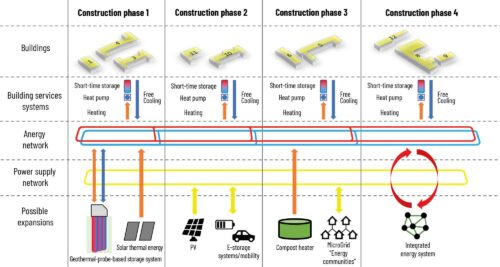
Source: AEE INTEC
Use of waste water
This project is striving for maximum resource conservation when it comes to water as well. The waste water will be treated for reuse with an aerobic retting and plant filtration system. The cleaned water will be stored and used for watering the gardens. Roughly 3 to 4 m3 of water can be kept on the property in this way every day. The rotted and composted solids from the waste water will be used as fertiliser.
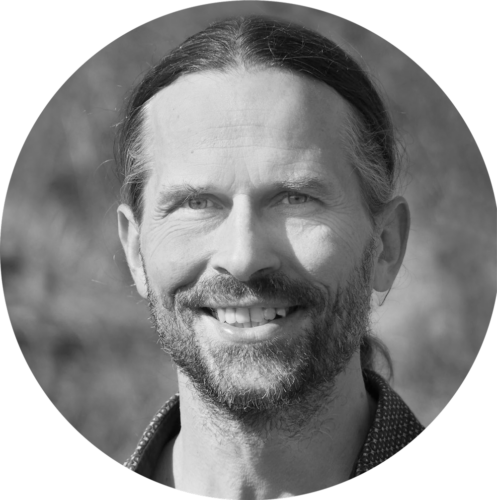
„As a community residential project, it is a new and beautiful experience for us to be involved in such a large research project. Thankfully, we have experienced partners at our side: above all, the company Obkircher Plus from Vienna and AEE INTEC Institute for Sustainable Technologies from Gleisdorf.“
Ronald Wytek
Board Member Garten der Generationen
Outlook
During the upcoming construction phases, additional buildings with similar usage profiles will be erected as well as energy production and storage units. The energy system will be expanded with external long-term storage systems. The plan also calls for the integration of photovoltaic modules to cover the electricity demand in the quarter via local energy sources. Innovative measures at the component and system level are also planned, such as for load and storage management and for linking together the heating, cooling and electricity supply systems. Over the long term, the goal is to achieve an integrated, maximally independent supply of heat and electricity as well as mobility options through the intelligent networking of supply, demand, storage capacities and user behaviour. The insights and experiences from the project can contribute to the planning and implementation of other sustainable construction projects.
nachhaltigwirtschaften.at/de/sdz/projekte/anergy-2-plus.php
1 Project partners: Garten der Generationen (project management), AEE INTEC Institute for Sustainable Technologies, Obkircher Plus
Detailed information for interested persons: www.gartendergenerationen.net
